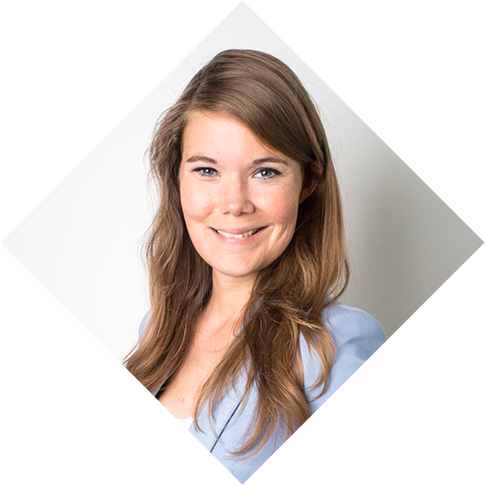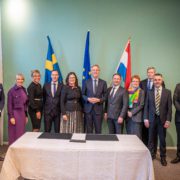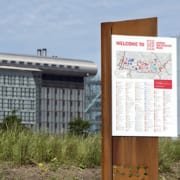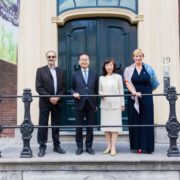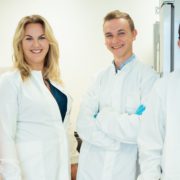Pandemic & Disaster Preparedness Center will soon prepare better for disasters
Erasmus MC, TU Delft and EUR are building a Pandemic & Disaster Preparedness Center (PDPC). This knowledge centre brings together top scientists with knowledge of pandemic threats and climate-related calamities to build an ambitious research agenda for the future.
The plan for a Pandemic & Disaster Preparedness Center is based on an aspiration of virologist Prof. Marion Koopmans, who wants to ensure that the current vigilance will not diminish once the pandemic is under control again. “At the moment, everyone realizes the enormous impact a global pandemic has on all aspects of society. Therefore, the time to take action is now. In consultation with fellow scientists at TU Delft, there turn out to be major parallels with disaster research, a field in which TU Delft has top expertise, “Koopmans said.
The idea is developed by a group of enthusiastic experts. TU Delft and Erasmus MC, together with Erasmus University Rotterdam, are affiliated in an assemblance of expertise: the Convergence. In this partnership, the medical-biological expertise of Erasmus MC ia merged with the technological knowledge of TU Delft and the sociological knowledge of EUR for over a year now.
The Pandemic & Disaster Preparedness Center will operate under the umbrella of the Convergence. Fifty engineers, doctors and scientists from the participating institutes are already affiliated with the PDPC. The municipality of Rotterdam wholeheartedly supports the initiative.
Lessons for the future
The current pandemic provides a wealth of information and lessons learned for the future. The Pandemic & Disaster Preparedness Center believes that the preparation should and can be improved. “The lightning-fast development of a new type of vaccines was possible through years of investment in fundamental knowledge,” says Koopmans. “That investment is also necessary to look to the future: what other virus threats are there? How can they be recognized? What makes viruses transmissible? Can we predict outbreaks and pandemics? Can we develop vaccines for entire groups of viruses? ”
Scientists have also learned a lot from previous other disasters, such as floods, heatwaves and periods of extreme drought. Society has benefited from the many lessons learned. Consider the arrival of the Delta Works in the Netherlands that was built after the flood disaster of 1953.
By bringing all that knowledge and data together, the Pandemic & Disaster Preparedness Center can simulate disaster scenarios and reveal weaknesses in the system. Subsequently, solutions can be devised for this, together with urban planners, architects, landscape developers, behavioural scientists and citizens.
An incident such as a flood or a pandemic always triggers a cascade of consequences. By collecting and connecting scientific data, certain adverse consequences can be mapped. Thus it becomes clear that the Covid pandemic is not only making people sick but that the entire healthcare system is stalling.
Various collaborations between researchers from TU Delft and Erasmus MC have already been started during the pandemic. We must therefore be able to draw knowledge from this misery, and use it for better preparation. Or to put it in medical terms: for prediction and prevention.
Test project
The Pandemic & Disaster Preparedness Center (PDPC) is working on interesting test projects, such as that of Bas Jonkman (TU Delft), an expert in flooding and its side effects. “In this test project we simulate storms and other disasters. Then bottlenecks emerge, such as stagnant water as fertile soil for infectious diseases, “Jonkman illustrates.
“But we also detect blockages in bridges and tunnels. We therefore look at the effects of traffic flows and the effects on people’s behaviour. By collaborating with other areas of expertise, we can also map out the effects on healthcare. ”
This knowledge of logistics is also used in experiments to safely reopen social traffic during this pandemic. All data can then be used to provide training. And they can be shared with policymakers to answer the question: what are we going to do to prepare?
Erasmus University Rotterdam contributes to the Pandemic & Disaster Preparedness Center with research into the social impact of disasters. “The current pandemic is having an unprecedented effect on society. From this crisis we learn that social inequality increases in a pandemic and that human behaviour is an undisputed factor in crisis management, “said behavioural scientist Prof. Dr Semiha Denktaş, of the Erasmus School of Social and Behavioral Sciences.
Not yet anchored anywhere
Scientific preparedness in the field of outbreaks and climate disasters has not yet been anchored anywhere, Marion Koopmans and colleagues realized at the beginning of December. And: it would be such a waste if the current lessons learned and the vigilance after the pandemic disappear to the background again.
Winston Churchill said after World War II: “Never waste a good crisis”. Marion Koopmans added: “Sustain technology and boost creativity, invest in your future breakthroughs, and do it together.”
In other words, put the current sentiment of “Never-Again” into action and actively prepare for new disasters. Because one thing is certain, scientists warn: With the major changes in the world, including climate change, the question is not whether we will be confronted with new disasters, but when.
Delta
The city of Rotterdam will act as a living field lab for the PDPC. Rotterdam is located in a river delta, has a huge port where all kinds of ships sail in and the city has a diverse population. It also builds in height and has a high concentration of concrete. The risk of disastrous heatwaves, excessive downpours, but also hotspots for infectious diseases is therefore considerable here. That is why the PDPC is also supported by the municipality of Rotterdam.
The abundant presence of water and water storage facilities, for example, is a potential risk factor for the outbreak of infectious diseases, experts now know. Stagnant water contains harmful microorganisms and mosquitoes breed in it. More harmful Mosquitoes are emerging in Rotterdam due to global warming. The tiger mosquito is an example that is increasingly being spotted in the Netherlands.
The combination of these elements makes Rotterdam an excellent place to function as a living laboratory. Researchers from Erasmus MC, TU Delft and doctors from the GGD Rotterdam Rijnmond are already working together intensively to gain insight into the spread and control of Covid-19 in the region, with innovative methods of risk-based testing, sewage water research, and behavioural science research, ‘says Koopmans.
NCOH
In addition, all researchers will soon also use the facilities of the Convergence institutes. Erasmus MC has the skills lab and the core facilities, while TU Delft has a variety of artificial intelligence, water and mobility labs. In time, researchers from other institutes can also join with related research proposals.
The Pandemic & Disaster Preparedness Center will be stationed at TU Delft and in Erasmus MC. In time, a joint location for the Convergence will be sought where the PDPC can also do its work. The PDPC also works closely with the Netherlands Center for One Health, where a variety of institutes are already working on multidisciplinary research into outbreaks of infectious diseases, and in which Marion Koopmans plays an important role.
This article originates from: amazingerasmus.nl
